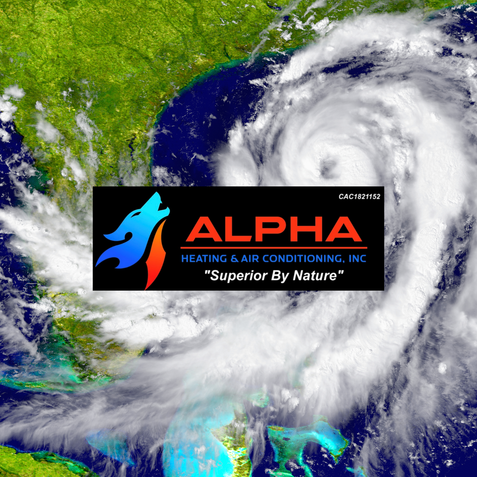As hurricane season approaches, it's crucial for homeowners in Ocala, Florida to prepare their homes for potential storms. One often overlooked aspect of hurricane preparedness is ensuring that your HVAC system is ready to weather the storm. In this blog post, we'll discuss the importance of preparing your HVAC system, provide a checklist of steps to take, and offer tips on how to protect your system during and after a hurricane.
Why Prepare Your HVAC System?
Your HVAC system is a significant investment and plays a vital role in maintaining a comfortable living environment. Hurricane-force winds, heavy rain, and flooding can cause severe damage to your HVAC system, leading to costly repairs or even the need for a complete replacement. By taking proactive steps to prepare your system, you can minimize the risk of damage and ensure that your home remains comfortable and safe throughout the hurricane season.
Pre-Hurricane HVAC Checklist:
- Secure outdoor units: Make sure your outdoor HVAC units are securely fastened to their base and consider adding hurricane straps for extra protection against strong winds.
- Clear debris: Remove any debris, such as leaves or branches, from around your outdoor units to prevent potential damage during the storm.
- Schedule professional maintenance: Before hurricane season begins, have a professional HVAC technician perform a comprehensive maintenance check to ensure your system is operating at peak efficiency and to address any potential issues.
- Invest in a surge protector: Install a surge protector to safeguard your HVAC system's electrical components from power surges caused by lightning strikes or electrical grid damage.
- Trim nearby trees: Cut back any tree branches that could potentially fall and damage your outdoor HVAC units during a hurricane.
Protecting Your HVAC System During and After the Storm:
- Turn off your system: If a hurricane is imminent, turn off your HVAC system to prevent damage from power surges or flooding.
- Cover outdoor units: If possible, cover your outdoor HVAC units with a tarp or plywood to protect them from flying debris and heavy rain.
- Wait for the all-clear: Once the hurricane has passed, wait for the all-clear from local authorities before turning your HVAC system back on.
- Inspect for damage: Before restarting your system, visually inspect your outdoor units for any signs of damage, such as dents, bent fins, or debris buildup. If you notice any damage, contact a professional HVAC technician for repairs.
- Check for water damage: Look for signs of water damage in your indoor HVAC components, such as the air handler or ductwork. If you suspect water damage, have a professional assess the situation and make any necessary repairs.
By following this comprehensive guide, you can ensure that your HVAC system is prepared for the challenges of hurricane season. Remember, investing time and effort into preparing your system now can save you from costly repairs and discomfort later. If you have any questions or concerns about your HVAC system's hurricane readiness, don't hesitate to contact the experts at Alpha Heating & Air Conditioning in Ocala, Florida.


